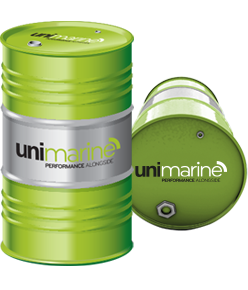- Homepage
- About Us
- Global Network
- Products
- Customer Service
- Technical Service
- Tools
- Accreditations
- Contact Us



Nowadays slow steaming is a hot topic in global shipping industry. A synonym of the slow steaming is reduction in vessel speed. There are difference modes of slow steaming operations: reduced speed, moderate slow steaming, deep slow steaming and ultra-slow steaming. As proven benefits including higher fuel savings, reduction in carbon emissions (CO2, NOx and SOx), improved reliability, and increased efficiency, have been distributed among shipping industry, marine main engine manufacturers approve and endorse ship operators running their fleet under slow steaming modes.
However, one of the major inevitable disadvantages of the slow steaming is the appearance of “cold corrosion” on the cylinder liners, which actually is a sort of corrosive wear causes by acid condensation resulting from a drop in engine operation temperature during the slow steaming mode.
UniMarine provides unique piston underside oil analysis program, Cylinder Scrape-Down Oil Analysis (CSDOA), to shipping industry for dealing with “cold corrosion”. By monitoring parameters of piston underside oil, the CSDOA not only is able to identify cold corrosion of cylinder walls and provides early warning the engineer to be on the alert for “cold corrosion”, but also benefits to other main engine related area such as optimization of cylinder oil feed rate.

CSDOA monitors following oil parameters:
Features:
Benefits: